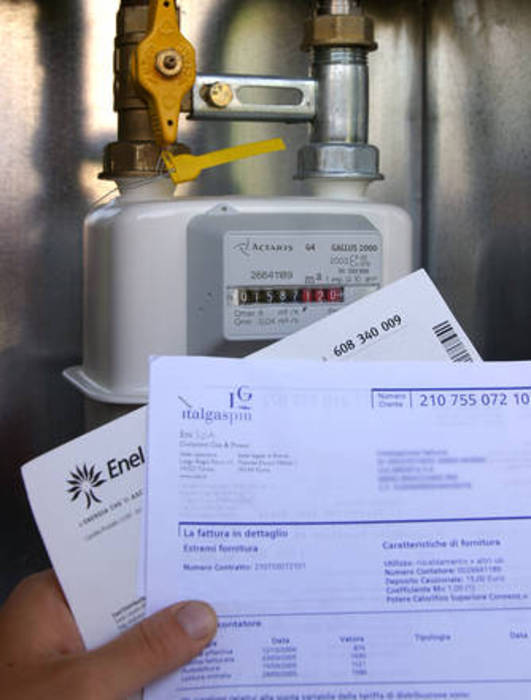At the end of each year, the two power companies, CLP and HK Electric, will announce adjustments to electricity tariffs, and nine out of ten of them are price increases.
Although there are always voices against this in the society, they believe that public utilities should not only care about commercial interests, and even advocate the government to open up the electricity market, introduce more competition, and reduce the burden on citizens, etc., but the authorities often resort to the "Scheme of Control Agreement", which seems to be helpless against price increases , and many suggestions will be ignored.
The two power companies announced earlier that they would increase prices next year, which once again sparked criticism from the outside world that the authorities would ignore it. The Secretary for the Environment and Ecology, Xie Zhanhuan, finally revealed recently that he is considering introducing power from other places to increase market competition.
This time, is the development and regulation of the electricity market expected to change?
The government plans to increase the proportion of renewable energy in the power generation fuel mix from the current 1% to 7.5% to 10% by 2035.
(Screenshot from HK Electric video)
Should the electricity market be opened up?
The electricity services provided by CLP and HK Electric in Hong Kong belong to an "oligopoly", each monopolizing the two major markets of Kowloon, the New Territories, most of the outlying islands, and Hong Kong Island, Po Toi Island, Ap Lei Chau, and Lamma Island; and Operating under the "Vertical Integration" model, each owns and operates the entire power supply chain in the designated service area, including power generation, transmission, distribution and retail, and provides services directly to users in the designated area.
The SAR government uses the "Scheme of Control Agreement" renewed every 15 years to moderately monitor the profits of the two power companies to ensure that they provide reliable power services at reasonable prices and ensure that the shareholders of the two power companies can earn reasonable returns.
Former Legislative Council member Frederick Frederick described the "Profit Control Agreement" as two electricity strangling the throat of the government, and every time the government proposed a fare increase, the government showed that it could do nothing.
Since the market is closed and there is no other choice, users must use the two types of electricity according to their area, no matter how much the electricity bill increases, they can only pay as they are ordered.
In fact, it is not the first time that the society has called for the opening of the electricity market, but it has been accompanied by price increases for the two electricity markets every year; the last serious discussion was when the SAR government conducted a public consultation on the future development of the electricity market in 2015, which also shows that in the long run it will Introduce competition.
However, the authorities changed their tone when they renewed the "Scheme of Control Agreement" with the two power companies in 2017, emphasizing that opening the market may lead to unstable supply.
The Secretary for the Environment and Ecology, Xie Zhanhuan, accepted an exclusive interview after taking office on July 1 this year. Even in the face of soaring global fuel prices and electricity tariffs have already fluctuated a lot, he also reiterated that opening up the electricity market may not be in line with Hong Kong's benefits, and he is also worried about free investment It will lead to oversupply and the public will still have to pay the bill.
Five months later, in the face of the record high electricity tariff increase, Xie Zhanhuan himself used "respect for the spirit of the contract" as a shield, saying that "if the electricity tariff increase is not allowed, the power supply may be unstable, and some power companies may even withdraw from the market." ", was criticized for "supporting the two power companies and ignoring the public", and finally changed his mind, saying that he was considering introducing power supply from other places to increase competition and reduce electricity bills.
It is generally believed that competition can help improve the operating efficiency of assets such as power plants and introduce innovative ideas, thereby reducing costs and improving operational efficiency, which may lead to lower electricity tariffs.
However, judging from overseas experience, the level of electricity tariffs is affected by many factors, and it is difficult to generalize based on whether the market is open or not.
Take Australia as an example. After the reform of the local electricity market in the 1980s and the privatization of the state-owned power company, the electricity rate did drop in the 1990s. However, since the implementation of the new environmental protection policy in 2007, the retail electricity rate has risen significantly.
According to the information summary "Measures to Open Electricity Market in Selected Places" issued by the Information Research Group of the Legislative Council Secretariat in August 2019, it analyzed the experiences of the United Kingdom and Singapore in introducing competition through different methods, and stated that "there is no convincing evidence that market opening will inevitably However, the conclusion of the summary also mentions that "opening up the market will benefit consumers because they will have more choice of electricity suppliers and pricing plans."
The Competition Commission had suggested that the government enter into competition in the electricity market, but it was rejected.
(File photo/Photo by Ou Jiale)
How to spin off the power supply business?
After going round and round, the SAR government is finally willing to reconsider opening up the electricity market to join the competition. It has finally begun to respond to social demands and has taken a very important first step.
However, judging from the ambiguous attitude of the authorities, there are still many issues that need to be clarified: Opening up competition is only a means. What purpose does the Hong Kong government actually hope to achieve?
If it is "reducing electricity bills" as Xie Zhanhuan said, wouldn't that overturn the official statement in the past that "the degree of market openness is not necessarily related to the rise and fall of electricity bills"?
If the purpose is to provide citizens with more choices of electricity services, have the authorities seriously explored how to reorganize the interest structure of the electricity market, how to separate the core business of electricity supply, and whether it is necessary to rebuild the regulatory market mechanism, etc.?
Lin Benli, a former associate professor at the School of Accounting and Finance of the Hong Kong Polytechnic University, once suggested that only the transmission and distribution assets of the two power companies should be protected, the power generation and power supply markets should be opened up in stages, and electricity tariffs should be reduced through competition and selection.
Zhong Zhaowei, director of the Energy and Environmental Policy Research Center of City University of Hong Kong, also made a similar suggestion, thinking that "the most ideal is to split the grid company and the power generation company". After the split, other companies can directly transmit and distribute electricity to the public through the grid, just like charging "road fee".
According to the aforementioned "Measures for Opening the Electricity Market in Selected Places", the UK successively enacted the "Energy Act 1983", "Electricity Act 1989", "Competition Act 1998" and "Public Utilities Act 2000", combined with licensing Mechanisms and industry codes to regulate electricity markets.
Different from Hong Kong's "vertically integrated" operation, local power licenses are split into four businesses: power generation, power transmission, power distribution and power supply, and operators can participate in one or more licensing businesses.
In terms of power generation, as of 2018, the number of power companies has increased from 3 to 57; but in terms of electricity prices, due to factors such as international fuel prices, the use of environmentally friendly fuels, and climate conditions, between 2010 and 2018, wholesale Electricity prices vary widely, ranging from £33.85 (HK$341) to £67.69 (HK$682) per MWh.
However, Chen Shaoxiong, a member of the Legislative Council Election Committee who is a senior consultant of CLP Power, believes that it is not appropriate for a city to have more than one power grid, otherwise it will cause a waste of resources, because the initial infrastructure investment of the power grid is huge, and new participants will be the same. It is not economical to build another power grid within the scope of power supply.
He also reiterated that the current planning of the two power grids is designed to meet the power supply source, operation mode, and user needs. If new companies other than the two power companies are to be added to participate in the power supply operation, complex legal and technical issues will inevitably be involved. In order to ensure a reliable and safe power supply.
Zou Chongming, a lecturer at the Hong Kong Polytechnic University, believes that only by further opening up the electricity market so that the public has more choices can the root cause be cured.
(Photo by Huang Baoying)
How to restructure the energy structure?
Zou Chongming, a lecturer in the Department of Applied Social Sciences of the Hong Kong Polytechnic University, believes that only by further opening up the electricity market and giving the public more choices can the root cause be cured: "If you install a solar panel in your home, you can even generate electricity with many people. Why do you have to let CLP What about Hong Kong Electric’s power generation?” He explained that with the advancement of technology, the types of energy sources have become more diversified and the power grid has become more dispersed, allowing communities and even families with conditions to design energy solutions that suit their specific life needs.
The government conducted a public consultation on the future development of the electricity market in 2015, and received a total of 86,128 submissions, of which 84,839 were from individuals and 1,289 were from groups and institutions.
Most of the responses supported the government to vigorously promote the development and use of renewable energy. At that time, the government responded that Hong Kong lacked fossil fuel resources, and the actual environment made it difficult to widely apply renewable energy. The unit power generation cost of renewable energy is more expensive than traditional power generation. Citizens or Pay higher electricity bills.
In order to combat climate change, governments around the world have set carbon reduction targets one after another, and people have begun to accept relatively high-cost environmentally friendly electricity.
However, natural resources are affected by the environment, and the supply is not stable, and traditional power generation methods are still needed for support; moreover, not all regions have abundant renewable energy resources and development conditions at the same time.
It is not that Hong Kong has not promoted the development of renewable energy, but it is generally criticized as insufficient and slow. It only plans to increase the proportion of renewable energy in the power generation fuel mix from the current 1% to 7.5% to 10% by 2035.
Regarding specific policies, such as the "Fire-in-Tariff" plan, the authorities have also been criticized for entrusting the heavy burden of approval to the two power companies. Their determination to develop renewable energy is self-evident.
Two electricity price increases.
上|"Profit control" changed to "profit protection" Who will monitor the two electricity for us?
Two electricity price increases.
Next|Is the government considering introducing a competitive electricity market to change?












